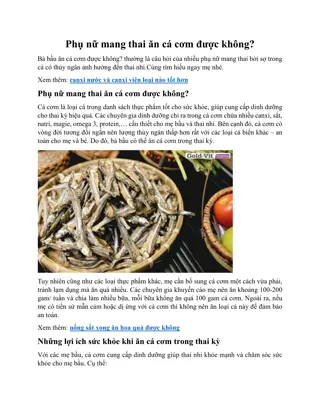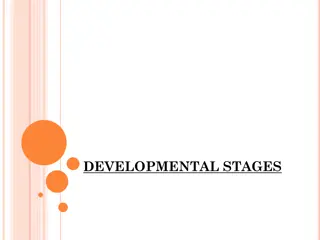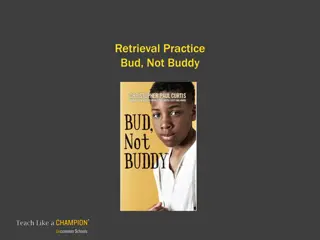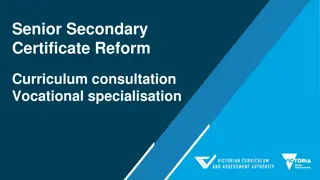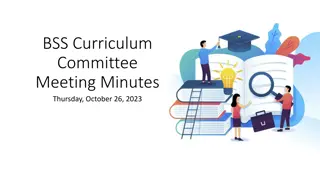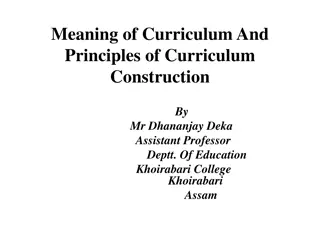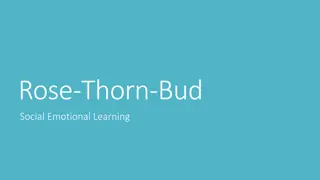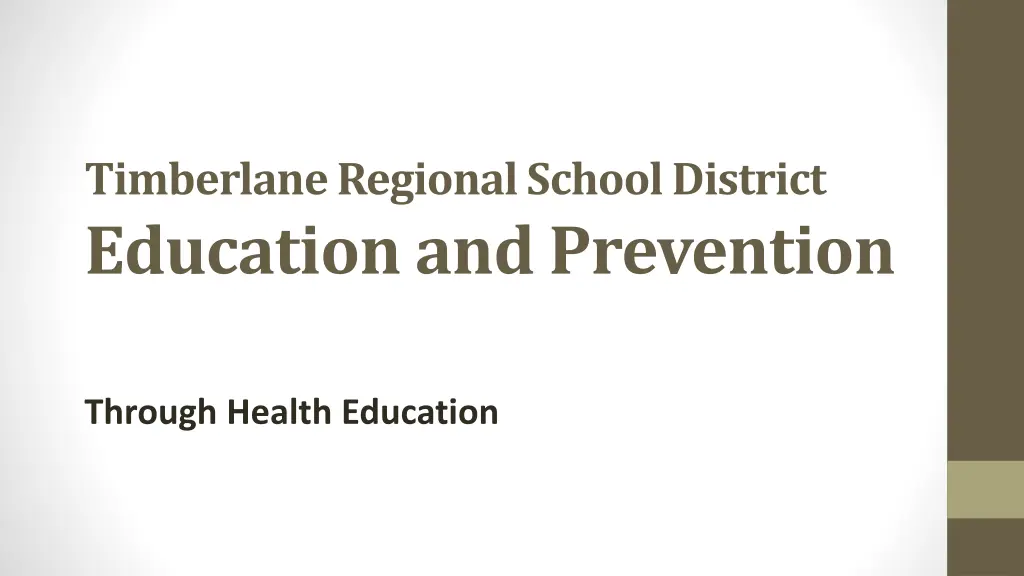
Promoting Health Education through Skills-Based Curriculum
Enhance health education by shifting to a skills-based curriculum focusing on real-life transferable skills like analyzing influences on health behaviors, accessing valid information, and using interpersonal communication. Align with National Health Standards to empower students in making informed decisions and practicing health-enhancing behaviors.
Download Presentation

Please find below an Image/Link to download the presentation.
The content on the website is provided AS IS for your information and personal use only. It may not be sold, licensed, or shared on other websites without obtaining consent from the author. If you encounter any issues during the download, it is possible that the publisher has removed the file from their server.
You are allowed to download the files provided on this website for personal or commercial use, subject to the condition that they are used lawfully. All files are the property of their respective owners.
The content on the website is provided AS IS for your information and personal use only. It may not be sold, licensed, or shared on other websites without obtaining consent from the author.
E N D
Presentation Transcript
Timberlane Regional School District Education and Prevention Through Health Education
Real Life Transferable Skills Shift to a Skills based Curriculum Move to a skills based curriculum from a knowledge based curriculum The goal is that students will be able to use the skills they learn in each unit and apply them to all aspects of life (now and in the future). Key skills that our Health curriculum addresses are taken directly from the National Health Education Standards
According to the CDC, todays state-of-the-art health education curricula reflects the growing body of research that emphasizes: Teaching functional health information (essential knowledge) Shaping personal values and beliefs that support healthy behavior Shaping group norms that value a healthy lifestyle Developing the essential health skills necessary to adopt, practice, and maintain health-enhancing behaviors Less effective curricula often overemphasize teaching scientific facts and increasing student knowledge. Source: http://www.cdc.gov/healthyschools/sher/characteristics/index.htm
Desired Skills Analyze the Influences on our health behaviors and attitudes Access valid health information, products, and services Communication Skills- interpersonal and intrapersonal communication Decision making--making decisions and analyzing consequences of choices Goal Setting Self Management Advocate for health promotion for oneself, family, school, and community
National Health Standards Standard 1: Students will comprehend concepts related to health promotion and disease prevention to enhance health. Standard 2: Students will analyze the influence of family, peers, culture, media, technology, and other factors on health behaviors. Standard 3: Students will demonstrate the ability to access valid information, products, and services to enhance health. Standard 4: Students will demonstrate the ability to use interpersonal communication skills to enhance health and avoid or reduce health risks.
Standards Continued Standard 5: Students will demonstrate the ability to use decision- making skills to enhance health. Standard 6: Students will demonstrate the ability to use goal-setting skills to enhance health. Standard 7: Students will demonstrate the ability to practice health- enhancing behaviors and avoid or reduce health risks. Standard 8: Students will demonstrate the ability to advocate for personal, family, and community health.
Education and Prevention Elementary Health Curriculum
Health for Elementary School Students The health and wellness of our students is a priority above all else Health topics are becoming increasingly more relevant in today s society Young students see and hear more health related information due to social media and technology. It is important to make sure that students have accurate information in order to make informed decisions If we create a solid foundation of information for our students at a young age, they will be able to build on the skills as they continue their schooling
When is the Health Curriculum Delivered? We are currently studying how to best deliver the curriculum P.E. teachers, school counselors and classroom teachers have content curricula to teach. Implementing the comprehensive health curriculum is challenging We must find natural places to integrate various aspects of the curriculum wherever possible, and create opportunities where none currently exist
Who Provides Health Education to Elementary Students? Classroom Teachers Guidance Counselors Nurses Physical Education Teachers Health teachers and additional school counselors are needed
Education and Prevention Middle School Health Curriculum
Grade 6 Units of Study Students will be able to independently use their learning to make informed decisions in order to lead a healthy lifestyle. Analyze Influences/ Social & Emototional Health Communication/ Alcohol, Tobacco & Drugs -Tobacco, Alcohol, Marijuana -Prescription Drug Abuse/Use -Decision Making Project /decision making involved in drug use avoidance -Drug Research Project /communication and assertiveness skills involved in drug use avoidance -Discussions regarding heroin and fentanyl generated by students
Grade 7 Units of Study Students will be able to independently use their learning to make informed decisions in order to lead a healthy lifestyle Decision Making/ Safety and Injury Prevention Goal Setting/ Nutrition and Fitness -Getting in a car with someone under the influence -A party one attends in which there are substances -A dating situation in which one partner is coerced to use. -The prevalence of sexual assault when substances are used. -The increased risk of violence, weapon use, accidents, drowning when substances are in use. -How substance use can alter life goals. -Tobacco/alcohol advertisements and their target audience. -Celebrating substance use with online postings and the consequences of doing so.
8th Grade Units of Study Students will be able to independently use their learning to make informed decisions in order to lead a healthy lifestyle. Advocacy, Social, and Emotional Health Accessing Information- Alcohol and Drugs Decision Making/ Relationships & Growth and Development -drugs, alcohol, tobacco, marijuana -reasons people use, so that they can lower their own risks of using -positive lifestyle factors/risky behaviors -coping skills and resilience -decision making skills
Education and Prevention High School Health Curriculum
Health 1 Units: Skill Content Goal Setting Personal Health Communication Mental/Emotional Health Self-Management Safety and Injury Prevention Accessing Information Nutrition Decision Making Human Sexuality Advocacy Alcohol, Tobacco and Other Drugs
How Curriculum Addresses the Addiction Crisis Health 1: Required for all students--mostly 9-10th grades - - - Communication: teaching refusal skills and how to be assertive Analyze the influences on choices around alcohol and drug use Access valid health information, products, and services--how to identify misleading information, reputable information Decision making--making decisions and analyzing consequences of choices, reflecting on choices, effects of choices on the future (health is cumulative) Goal Setting-having goals can decrease risk, goals can be impacted by substance abuse Advocacy-students will apply acquired skills to create a message to peers about healthy choices. - - -
Health 2 Units: Skill Content Analyze Influences Personal Health Communication Relationships Accessing Information Addiction & Recovery Decision Making Nutrition Advocacy Environmental Health Goal Setting Fitness
How Curriculum Addresses the Addiction Crisis Health 2: Elective Course--10th-12th grades - Communication: teaching boundary setting, which includes drugs and alcohol, how to be assertive. (Skits, situations to respond to) - Analyzing Influences: discuss the influence of others on health choices - Accessing Information, Products, and Services: students research and locate local resources for addiction and recovery. (AA, NA, inpatient, outpatient, personal speakers) - Decision Making
Guest Speakers Chucky Rosa Jon Lovett AS, EMT-P Lawrence General Hospital Manager: Pre-Hospital Emergency Medical Services Manager: Pediatric Advanced Life Support Program Timberlane alumni and lives in the district Jeff Hatch Works in Treatment Industry (Granite House) Recovering Addict Former NFL Player Chucky s Fight Non-Profit Parent of 2 fatal overdoses Recovering Addict Amanda Hanides RN Lead Nurse - Spectrum Health (Methadone Clinic, Haverhill, MA) RN - Rockingham County Jail Timberlane alumni
Impact of Speakers Student surveys are taken after each guest speaker to have students share their thoughts on the impact they had and what they took from it. We select speakers from a variety of backgrounds: personal experience, recovery/treatment, and community members. Students have contacted our speakers outside of the classroom looking for support and guidance. Students have shown high levels of emotion during the presentations.
Impact of Speakers Students have shared and opened up in class about their family struggles and experience with addiction. Students have shared with their teachers that they have looked to the dog tag that Chucky gave them in the presentation to make a healthy choice. Teachers have seen students in the halls wearing their dog tag throughout school. Students have joined Chucky for his swim in the ocean outside of school.
Resources to Help Us Be More Effective Funding to cover the costs of guest speakers Support for field trips to addiction treatment centers/community programs Conduct a Youth Risk Behavior Surveillance System (YRBSS) Other method to consider would be a district generated evaluation tool (SurveyMonkey) Team up with Chucky Rosa to implement a school wide unite to fight addiction program.
Potential Programs to Consider Samantha Skunk (Pre-K through grade 2) Too Good for Drugs (Grades 1 through 4) Media Power Youth (Grades 5, 7, and 10) Project ALERT (Grades 7 and 8) Project SUCCESS (Grades 8 and 9) Prime for Life (Grades 9 through 12) Botvin LifeSkills Training (All grades)






